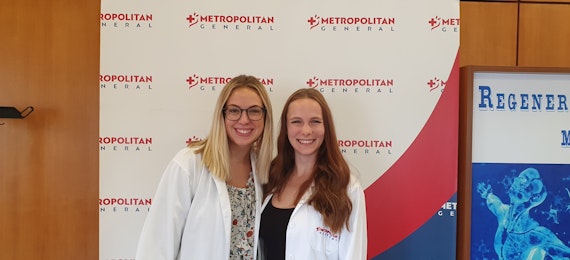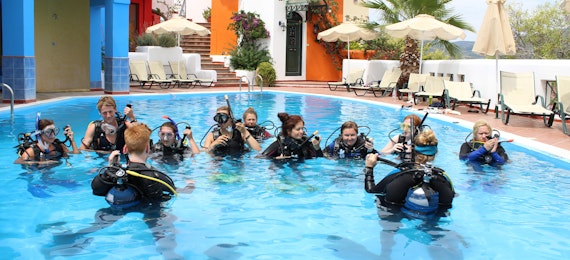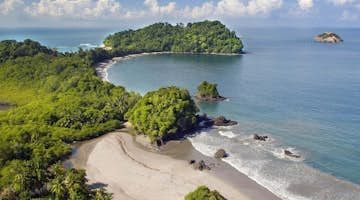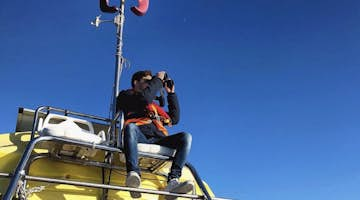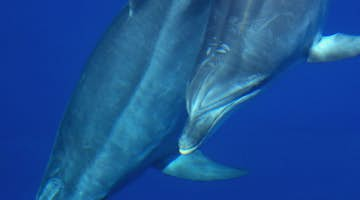
Marine Ecology
Virtual internships in Marine Ecology out of Greece are hosted by a highly respected non-profit NGO. Interns assist with multidisciplinary research efforts into the health of marine environments and the flow-on effect it has on marine life. Remote interns analyze video footage for real-time data on these environments, which can then be used to inform local conservation and environmental management activities.
Internship Highlights:
- Contribute to a range of marine research projects
- Get a genuine understanding of the health of Mediterranean marine environments
- Understand how different habitats impact different life forms
- Gain real-world international experience while interning remotely from home without having to travel
Type of host organizations:
- NGOs involved in marine ecology research
Internship details
Gain practical marine ecology experience and inform local conservation and environmental management activities by interning remotely from home.
Marine Ecology remote internships out of Greece are hosted by a highly respected non-profit NGO that uses scientific research to inform marine conservation work in the area. Remote interns aid the NGO by helping to analyze and interpret environmental data, which is being collected during surveys conducted in the spring, summer and autumn of 2024. Interns can assist research in a number of areas, including:
Assessing blue carbon in seagrass meadows
Blue carbon is the amount of carbon that’s sequestered in a marine environment. Seagrass is one of the biggest sources of carbon sequestration on the planet, exceeding even the rate of rainforests. For this reason, preserving seagrass meadows is an important conservation priority.
Remote marine ecology interns assist monitoring of carbon sequestering to determine the productivity of seagrass meadows in different circumstances, helping to maximize efficiency and contributing to conservation techniques. Interns can also help to assess data from different seasons, measuring the effect of oxygen, temperature and light levels on sequestering rates.
Assessing seagrass habitats
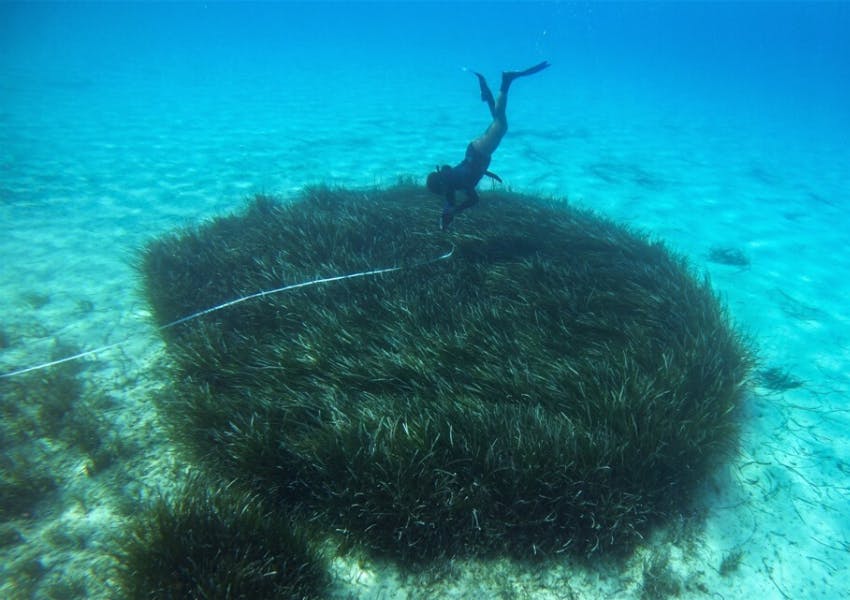
Another important function of seagrass is as a habitat for a wide range of fish and macroinvertebrates. Seagrass meadows are highly successful nurseries for many different species, and research into these species gives valuable feedback on the richness of seagrass meadows. This is especially relevant for replanted meadows, as research helps to monitor how species establish themselves in new habitats.
Remote interns help to analyze video footage of new and existing seagrass meadows to inform research on species density and behavior. This research gives revealing insight into the health of individual meadows over time.
Invasive species analysis
Invasive species that spread throughout the Mediterranean can impact marine biodiversity and ecosystem services. However, there is relatively little information to provide insight into the ongoing spread and impact of invasive species.
Online marine ecology interns help to analyze film footage to identify and quantify invasive species in different habitats, contributing to action plans that mitigate the effects of foreign marine life. Information is used on an official scientific database that monitors the spread of invasive species all around the Mediterranean.
Artificial reef assessment
Artificial reefs play an important role in supporting populations of marine life that rely on natural reef habitats, which are in decline. Scientists are at an early stage of assessing the success of artificial reef establishment, and marine ecology interns help this analysis by monitoring video footage to determine the success of species populations in these environments.
This is valuable research contributing to a potentially exciting solution for reef deterioration, which is a pressing marine conservation concern all around the world.
Monitoring biodiversity
Monitoring fish biodiversity is an important way for assessing the quality of different habitats. There are many ways to do this, such as through snorkel surveys, underwater drones, or underwater cameras.
Remote marine ecology interns can be involved with analyzing footage collected through various means, to gather data on population density. Interns can also compare data from different collection methods to help to determine which is most efficient and accurate.
In all cases, interns should expect that the initial phase of their remote internship will focus on gaining some introductory knowledge. You may start by gaining an understanding or overview of what you can build upon, develop, learn, and contribute. Ensure that you ask questions and provide feedback during the introductory period, so that your supervisor understands how you’re progressing. This will help them to better understand important details, such as how quickly you learn, what you find challenging, what you find interesting, etc.
Understand and expect that individual internship experiences vary. Therefore, if you’re at a more introductory level, you should reasonably expect a more introductory internship. Likewise, if you’re interning for a shorter duration, you will have a different experience from someone who is interning for a longer duration. Placement preferences are considered but always subject to availability.
Career Benefits
Marine Ecology interns learn from a qualified and experienced supervisor, and can be involved in:
-
Monitoring carbon sequestering rates
-
Comparing seasonal and situational data
-
Assess video footage to collect data on species population and behavior
-
Identify and analyze invasive species
Professional development opportunities:
-
Experience analyzing video footage to gather data
-
Interns gain skills identifying different marine species and labelling behavior
-
Experience how research informs conservation techniques
-
Gain practical skills and boost your employability, with guidance from Intern Abroad HQ’s Experiential Learning Curriculum to support your learning and cultural intelligence.
What recent interns said about their experience
What I enjoyed most about this internship was the independent research and study activities, because I was able to finally develop my scientific research and writing skills (without the immediate help of others).
After doing this internship, I now feel more confident with my scientific writing skills, as well as more capable in writing literature reviews, and project proposals. I went into this remote internship experience feeling a little nervous but my supervisor was extremely understanding and there to assist me. The feedback I received will definitely help me in my field and I appreciate my supervisor for taking time out to review all my assignments. The feedback provided will be of great help to me academically in the future, since I'm planning on applying to a Master program in Marine & Environmental Science.
My favorite outcome from the internship was the constant learning that I experienced. Whether the learning had to do with the more personal side or the actual internship side of things, there was always something new. The most significant learning point was finding a way to balance the workload from the internship and school. I learned how hard that it could be, but also how rewarding it was to do the internship.
To read all reviews, visit our reviews page.

Academic credit available for all internships
Gain course credit from your college or university and meet your academic requirements when completing an internship abroad or remote internship program with Intern Abroad HQ.
Learn about course creditProgram fees
It’s free to apply for this internship. Once we have reviewed your suitability and accepted you onto this program, you’ll need to pay a deposit of US$499 to confirm your place. The remaining balance of your Program Fee (less your initial US$499 deposit payment) will be due within 7 days of being assigned a placement.
Duration |
Program Fee |
|---|---|
| 100 hours (3 weeks full time, or 5 weeks part time) | $1,099 |
| 250 hours (8 weeks full time, or 12 weeks part time) | $1,499 |
| 350 hours (13 weeks full time, or 17 weeks part time) | $1,799 |
- Dedicated support before, during, and after your internship
- Sourcing and securing your internship placement
- Personalization of your internship plan
- Orientation and coaching with your supervisor
- Documented portfolio of your experiential learnings
- Academic credit facilitation
- International reference letter
- Certificate of Internship Completion
- A deposit of $499 (approximately 499) is required to secure your internship
- Balance of your Program Fee is due within 7 days of being assigned a placement.
- All payments attract a 5% transaction fee to cover international banking fees and currency charges.
- International wire transfer payments attract a minimum fee of $75 USD.
- Terms and Conditions apply.

